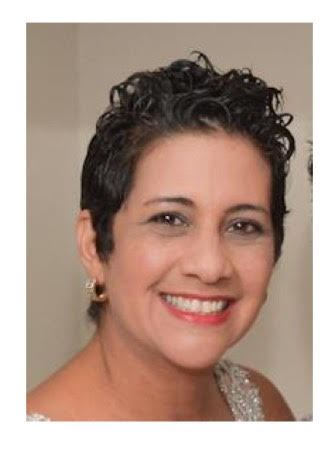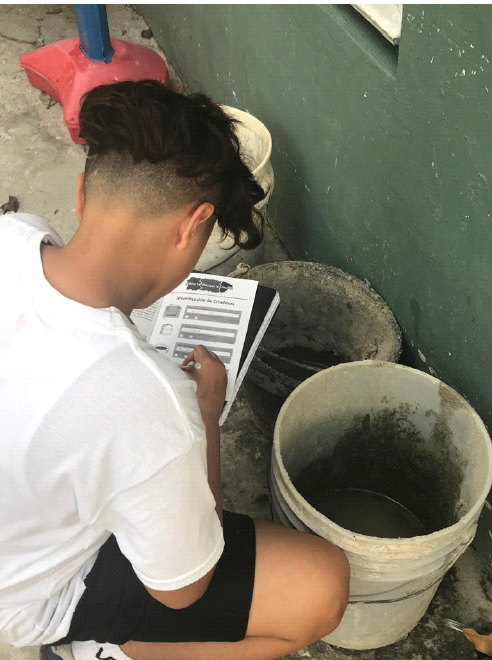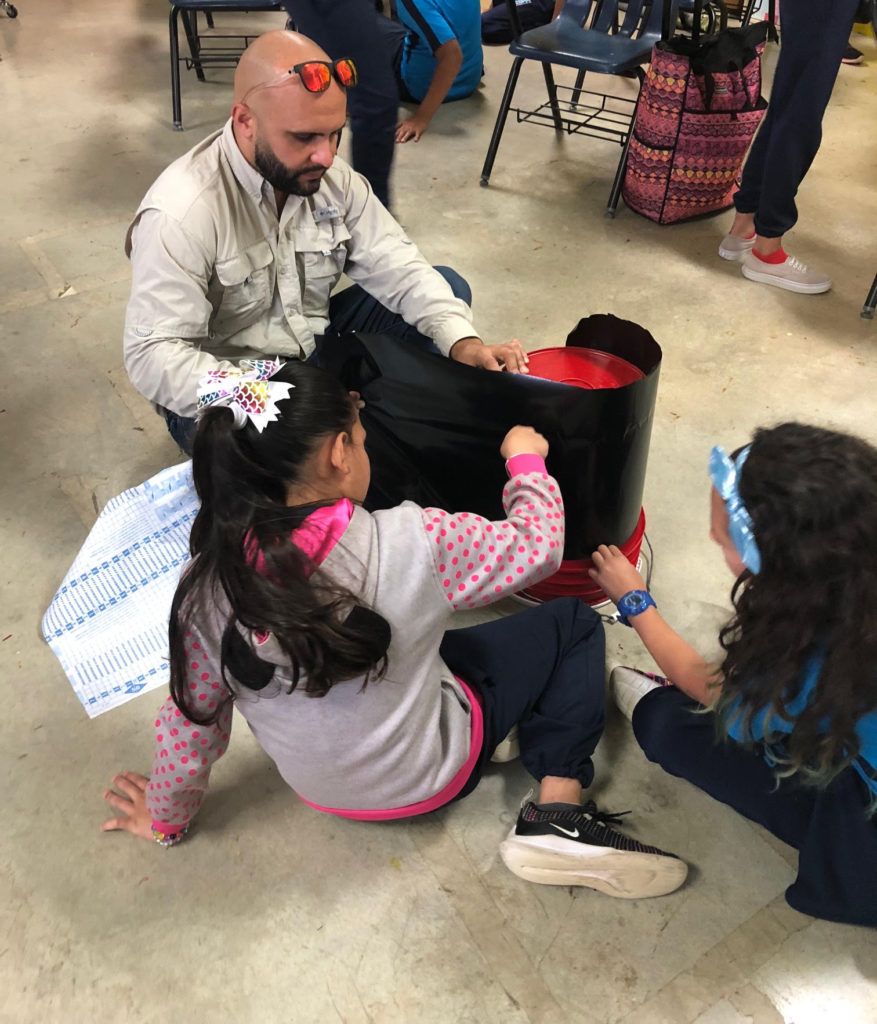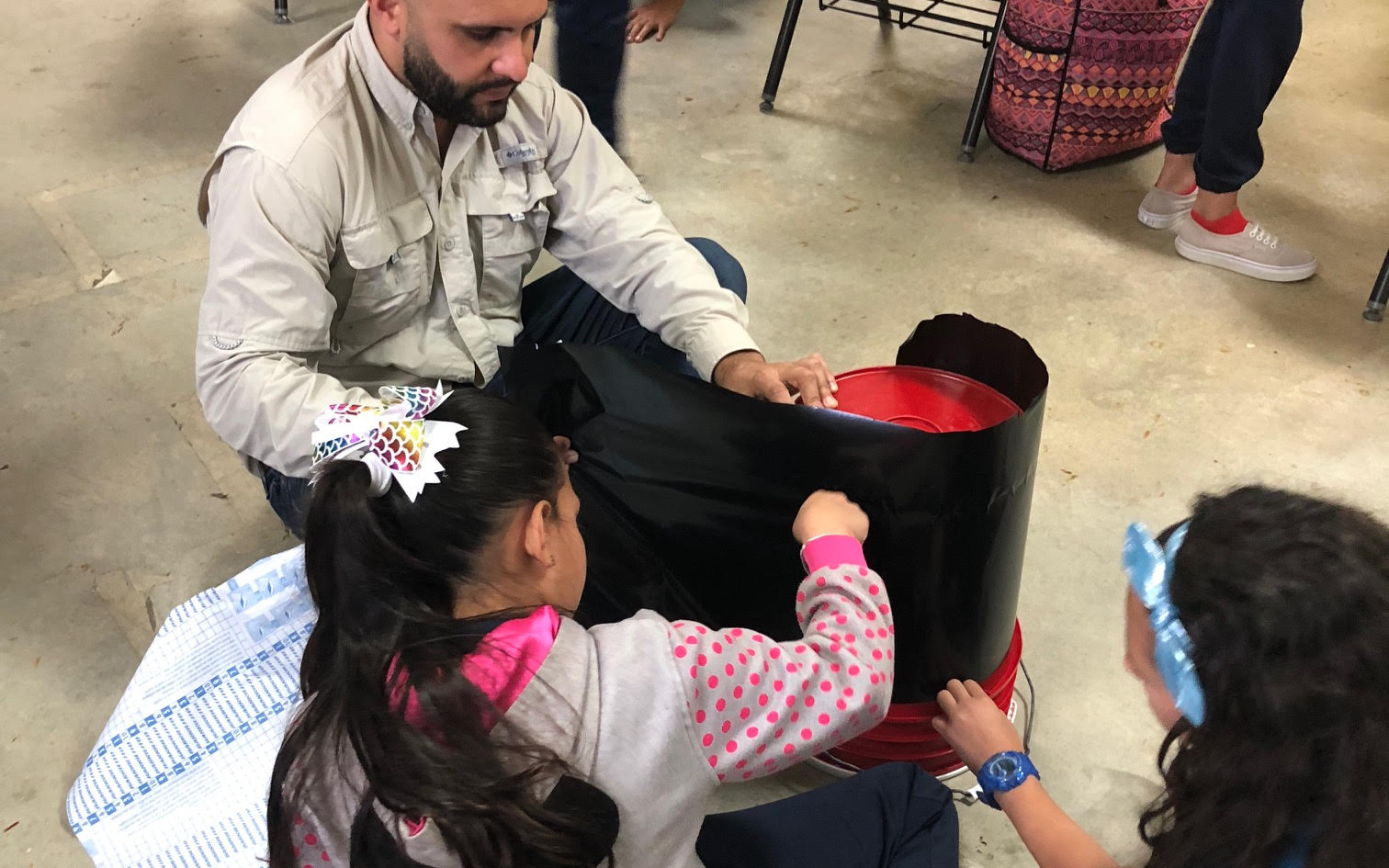
In this article, meet Prof. Glenda Ivette Lozada Negrón, a science teacher whose elementary classroom is actively engaged in reducing the risk of mosquito borne disease through mosquito surveillance and mitigation, as part of an ongoing service learning project in Puerto Rico .
Tell us about your project?
The project began as part of a curriculum with the Science and Research Trust of Puerto Rico and the Science in Service project. It is a community of teachers that serves to help students create new learning communities.
Since August 2018, I have been working with an entomologist, Prof. Fernando L. González Delgado in my school and with my students. We collect the water to determine whether Aedes aegypti mosquitoes are present, and we validate the information using the data we collect. In addition, students meet regularly with the entomologist to learn about mosquito vectors and communicate their findings.
Do they do mosquito work during classes?
Fieldwork in conducted during class. We prepare traps with the students and with the help of the entomologist, we collect larvae and pupae for analysis. We learn about mosquito biology by observing the metamorphosis of mosquitoes. The students really enjoy preparing the traps, collecting data and identifying mosquitoes. They are very interested in this project because addresses a “real” science problem in our school community. Mosquito-borne diseases are a serious threat in the place where we live.
Do they make a difference in your community?
The students are really making a difference in their community. They are raising awareness about the mosquito problem and are promoting healthy lifestyles in their community through presentations, talks, information brochures and posters. With the entomologist, the students created mosquito repellents using natural and botanical ingredients. There are many things that private citizens can do, such as cleaning up areas with standing water and collect garbage. The students’ work inspires other people to have a better place in our community.
How did Hurricane Maria impact the mosquitoes where you live?
The problem of vector-borne diseases increased after Hurricane Maria on our island. After the storm, there were many more places for mosquitoes to lay their eggs. We had a lot of trash and debris and this dramatically increased the number of breeding sites on our island.


Students making mosquito traps from recycled materials
What is in the project that students seem to enjoy more?
Our students like to visit the science lab in San Juan and they share what they learn with STEM professionals, biologists, microbiologists and entomologists and chemists. They presented their problem-based-learning project, Mosquitoes as Disease Vectors to the staff of the Vector Control Unit, and had an opportunity to visit with technicians working in the facility and see the insectarium. Exposing students to STEM careers with science professionals promotes their natural desire to investigate and learn about the world around them. They really enjoy these activities.
We are in a sustainability conference. Can you talk about the role of this project with respect to environmental justice and sustainability?
We need to prepare our students to be global citizens and since they must develop science-related skills, attitudes and knowledge to create a more sustainable society. We need to understand that we are interconnected, and this problem is not just a local problem, it is a global problem. It’s time to take action.
Professor Lozada is a teacher for the Second Unit Adolfo García in Naranjito, Puerto Rico. She has a BA in Education at the Preschool and Elementary level, and a master’s degree in Education with a specialty in Child Development, Mathematics and STEM, from the University of Puerto Rico. She is recognized as an Innovative Teacher (2016-current) and also is part of the Google Earth community in Latin America. Glenda is a teacher ambassador with the National Center for Science Education at Clemson University, and was a member of the Global Education Allies team in Finland and the Baltic countries.
Sobre la Unidad de Control de Vectores de P.R.:
La Unidad de Control de Vectores de Puerto Rico es un programa del Fideicomiso para Ciencia, Tecnología e Investigación de Puerto Rico en colaboración con los Centros para el Control y la Prevención de Enfermedades y el Departamento de Salud de Puerto Rico. La Unidad fue establecida para reforzar las capacidades de la Isla para controlar el mosquito Aedes aegypti, vector del dengue, Zika y chikungunya. Su programa de Manejo Integrado de Vectores cuenta con tres iniciativas principales para lograr aspirar a un Puerto Rico libre de enfermedades trasmitidas por mosquitos. Los tres pilares son monitoreo y vigilancia, movilización comunitaria y control de vectores. Mediante la educación y el empoderamiento a los ciudadanos se logrará reducir dramática y sosteniblemente la población de mosquitos en todo Puerto Rico. Para más información: www.prvectorcontrol.org.
Sobre el Fideicomiso para Ciencia, Tecnología e Investigación de Puerto Rico:
El Fideicomiso para Ciencia, Tecnología e Investigación, según descrito en la Ley Pública 214, es una organización sin fines de lucro creada en el 2004 para impulsar la participación y creación de empleos de la Isla en la economía global del conocimiento al promover la inversión y el financiamiento de la investigación y el desarrollo de la ciencia y la tecnología. Al invertir en la investigación y la comercialización de la tecnología, el Fideicomiso sirve de catalizador para la creación de empleos y la retención de los residentes de la Isla altamente cualificados y a menudo bilingües. Es también responsable de la política pública de Puerto Rico para la ciencia, la tecnología, la investigación y el desarrollo. Para más información : www.prsciencetrust.org.
